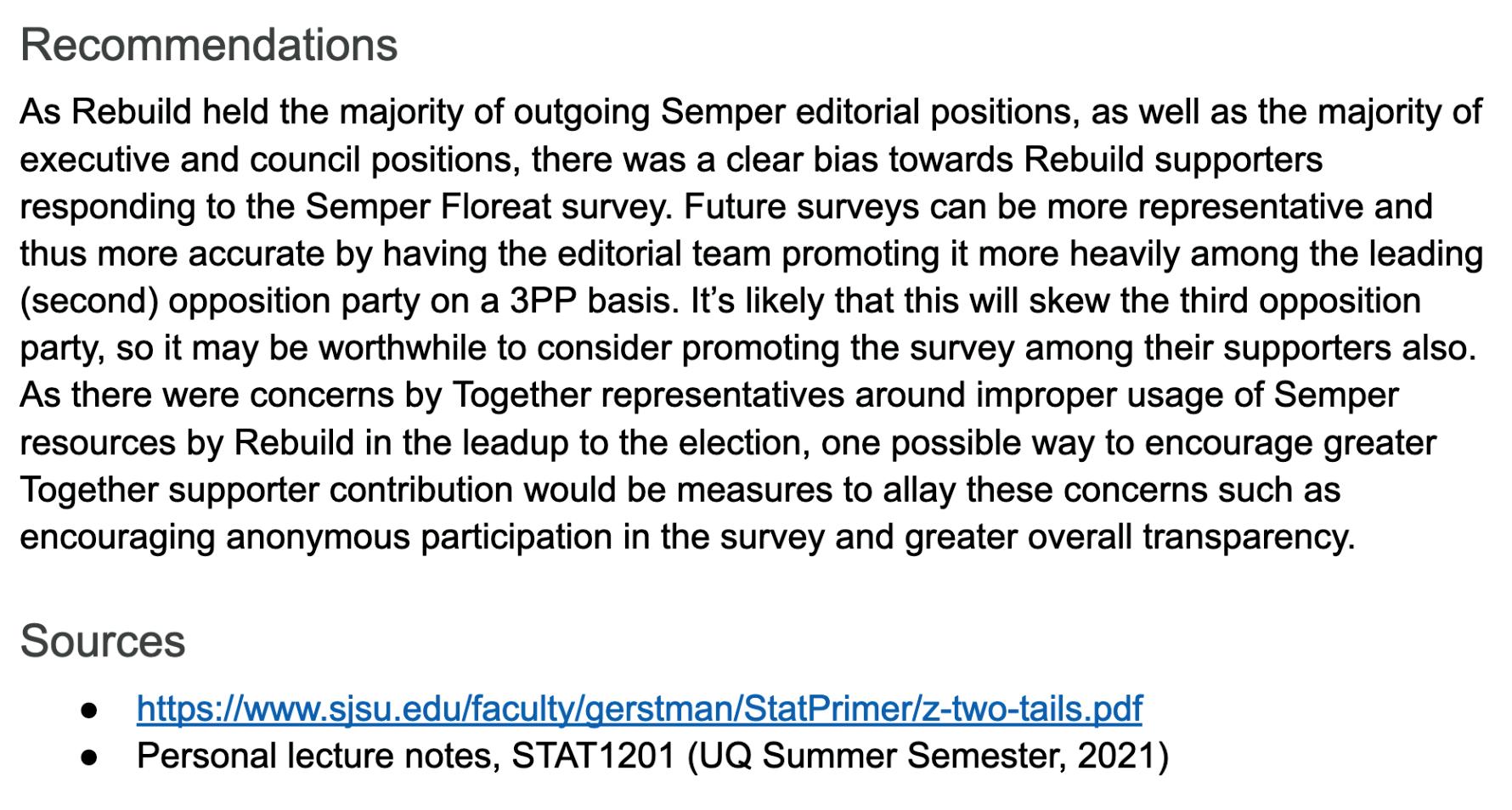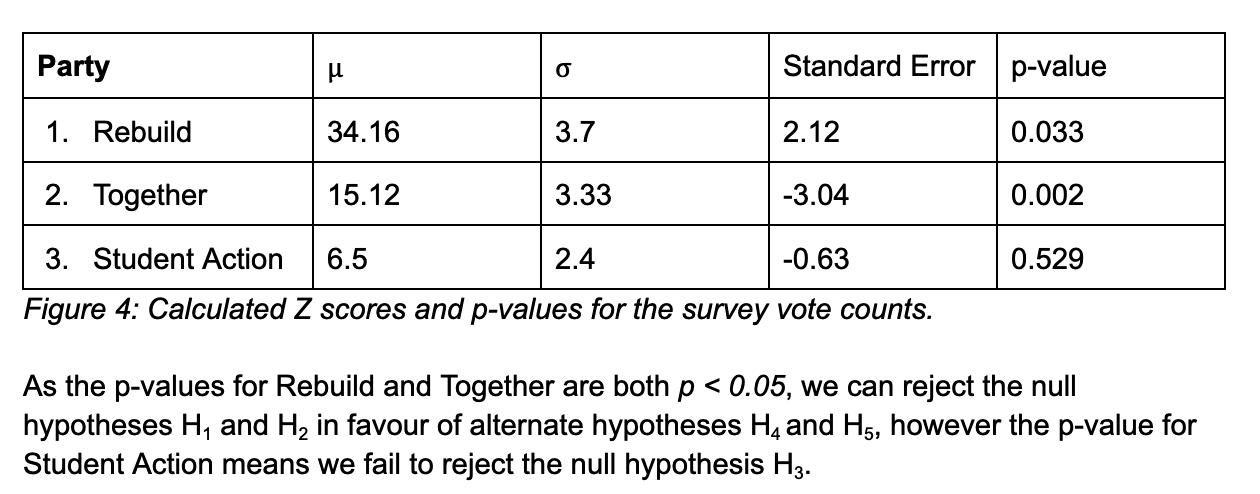SEMPER FLOREAT December 2022 THE FINAL EDITION
design by Lily Ghali



Semper Floreat's editorship would like to acknowledge the First Nations' custodians of the land from which we write. Sovereignty was never ceded. We recognise and apologise for the ongoing colonial violence perpetuated against this country's original peoples.
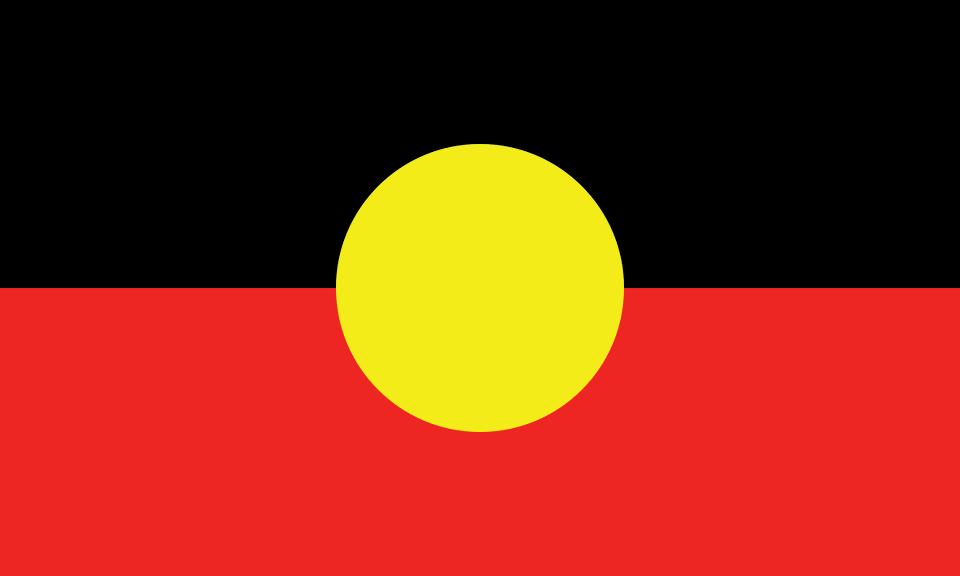
We, and our governments, have failed. Widespread racism persists. Each and every one of us is responsible for this, and so we must do out utmost to re-examine our own shortcomings and work to change the culture that surrounds us socio-politically.
Semper commits to platforming Indigenous voices, and assisting however we can in the fight for meaningful reconciliation and tangible reparations.
By working to develop close relationships with students and community members from the Goorie Berrimpa collective, and other relevant groups in Meanjinn, we hope to empower writers, activists, and artists to bring about some lasting and longoverdue change.
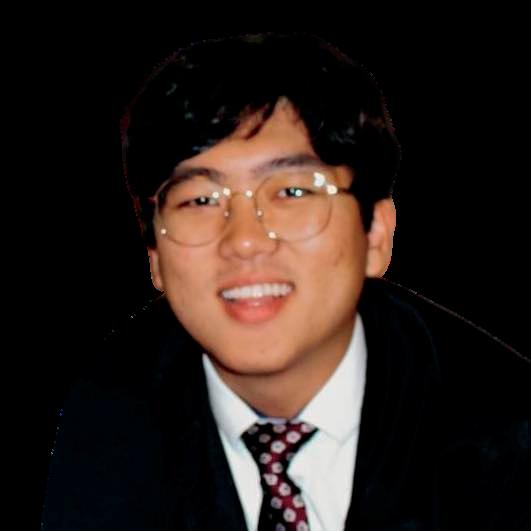
The UQ Union is an organisation run by students, for students. As your representative body we exist to advocate for, support and entertain you. As long as you are a UQ Student you are automatically a member of the Union, with no joining fee attached.


We provide Clubs and Societies for every hobby, interest, passion you may have. Free and independent support services (SAS) for when you need legal, welfare, education or visa support. Big events such as the renowned Toga Party and Market Day. When you need a campus feed we have 11 food and beverage outlets including the RedRoom and Pizza Caffe. For direct advocacy contact the Queer, Women’s, Student Rights, Environment, Postgraduate, International and Disabilities Collective. During exams we deliver snacks, energy drinks, loan calculators, stationary and a stress hotline. We also run free breakfast and dinner programs, exam support and the Food Co-Op.
As an independent body, UQU represents students on all important university committees to ensure your voice is heard on all university matters.
Being the 2022 President of the UQ Union has been the greatest privilege one could ask for The job is nonstop and myself and the team have been working long hours, pulling all nighters and constantly seeking feedback in order to give YOU the best possible student experience.
Students are struggling, we have seen and experienced this struggle which is why we are best placed to help and support you. We have also made the most of our emergence from COVID with hundreds of events that we hope you have loved attending as much as we have enjoyed throwing them
This is a list of the things I am most proud of this year:
Opening the Food Co-Op
Saving the historic Schonell Theatre and preventing the demolition of the Union Complex
The most elaborate and comprehensive exam support program that UQ or any other University has ever seen featuring; Kampus Kitchen every night Food Trucks
Loan calculators
Meals for Herston, Gatton and PACE
Library exam support carts Emergency stationery outside exam halls
An extraordinary amount of bubble tea Mates Rates 10% discounts off all Union outlets
Connecting International Students with Domestic students especially with the Arts and Cultural Festival and ATLAS Ball Banning ProctorU from 2023 onwards
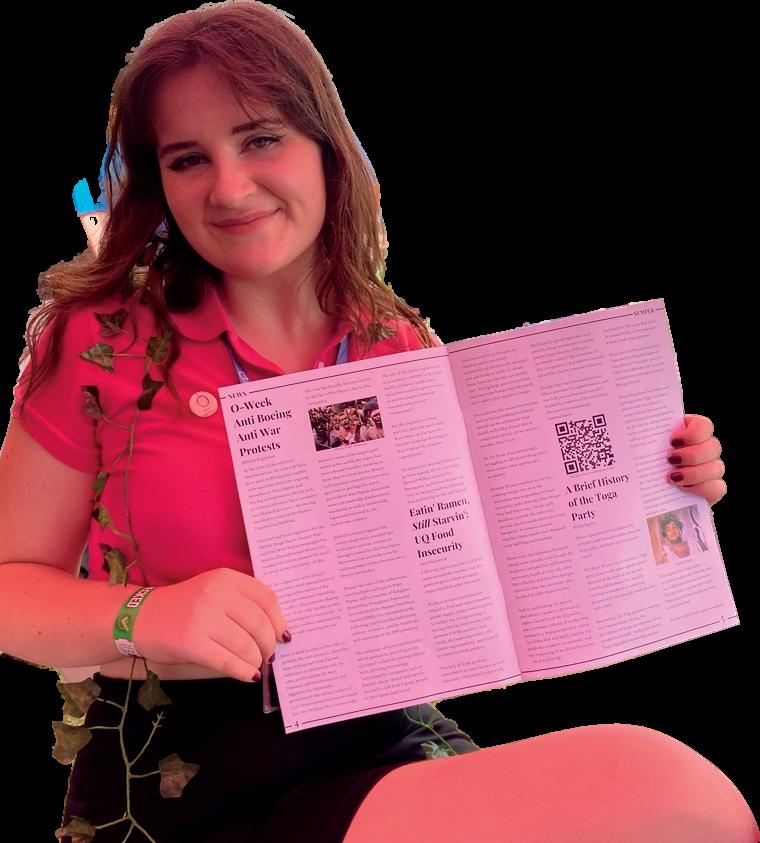
Consistently and successfully pushing for an exam extension process overhaul Orientation events like the very wet Toga and Speed Friending Free period products available across campuses Hiring two more advocates to the Student Advocacy and Support team as well as an International Students Officer
Facilitating the FIRST EVER Bubble Tea Vending Machine at Darwins
More than doubling the bursary fund Brought back the Wednesday Markets
The first ever Union emergency accommodation arrangement for students in crisis thanks to our partnership with Emmanuel College
Reacting quickly to the Floods by providing a safe space for displaced St Lucia students, free meals and galvanising volunteers for the clean-up effort
To finish off the year we piloted the $2.5 coffee election promise in all union outlets during the SWOT-VAC and exam period.
As you can see we have certainly been busy this year with all these new initiatives while maintaining the existing Union functions that students rely on so heavily.
I am grateful for the opportunity to campaign and work alongside such passionate and hardworking individuals with a focus on helping and uplifting the UQ student community I am proud to endorse the incoming 2023 executive team and hope you will throw your support behind us for another year and feel confident that your Union will be in the safest of hands

In 2022, the UQ Union received an increased proportion of SSAF - moving from 20% of overall SSAF collected by the University to 32 5% - which has allowed us to expand and improve our services for students. As such, preparing the 2022 budget has been monumental for the Union as we have been able to heavily invest in programs that are so integral to students on campus.
I’m very proud of the team that I’ve had the pleasure of working with this year; with their vision and passion, we were able to allocate this increase to worthy and impactful causes. From doubling our bursaries, to implementing the bustling food co-op, to subsidised Auslan classes, to throwing the first ever International Atlas Ball in collaboration with 15 clubs - and with the most impassioned Ball committee at the helm - and much more, it’s been a pleasure to support portfolios throughout this year (and we’re not quite done)!
Through careful and responsible prioritisation, we have been able to significantly improve the Union’s financial position to ensure that this students well into the ntained a high degree ncial transparency by nting comprehensive rts each month to uncil
As such, I’m proud to say that the Union is well placed to take on the even greater proportion of SSAF in 2023 that has been secured!
P S despite all the above [left], the absolute and uncontested highlight of my year has been creating the cryptic crossword for the first 2022 Semper edition, and watching friends and colleagues complete it <3

The role of UQU secretary often confuses people, but in short I am responsible all of the internal operations of the student union. I do all the administrative tasks relating to Union Council meetings and ensure the constitution and regulations enhance the student voice
The Union has passed the following regulation changes in 2022:
Empowering the Returning Officer to make elections more accessible Limiting “feeder tickets” in elections for transparency
Giving every UQU club a voice on the Gatton Board Paying the disability officers for their advocacy Hosting a referendum that will give PACE an official elected representative
And there are so many more changes yet to come!
Within the UQU, there are a further NUM elected roles, with 6 comprising the rest of the T9 alongside the President, Secretary, and Treasurer. This section comprises the end-of-year reports from these elected roles.
Campus Culture (Campus Culture, Clubs & Societies) Student Rights (Academic Rights, Welfare) Women and Queer
Hi! I’m Samara and I have been UQ Union’s Vice President for Academic Student Rights this year! It’s been a pleasure representing students this year, heavily collaborating with SAS (Student Advocacy and Support) and offering academic and financial support to the best of the Union’s ability

My largest focus this year has been upscaling the ‘Placement Bursaries’ offered to students struggling financially while completing compulsory placements Compared to previous years, this year we were able to give out $45k+ to over 95 students which is a huge increase Ideally, I’d love to see this initiative continue to expand in future as the number of applications alone (170+ across 3 rounds) is demonstrative of a sincere need for this service. Other financial support has also been offered in the form of the ‘Accessible Academic Grant’ – a service whereby students can apply for the Union to purchase academic essentials (i.e. textbooks, materials, uniforms, etc) if they are struggling financially
Another major component to this role is the representative aspect. Advocating for students’ interests in board/committee settings, as well as extensive engagement with academic and administrative staff outside of such meetings has been crucial to not only presenting the interests of the student body on potential academic policy changes, but also important in understanding the achievability of policy election
promises within the scope of the Union. For example, while changing the structure of placements would be ideal to alleviate stress from students, placement requirements are usually set by institutions external to the university – making it hard for UQU to affect policy change. As such, financial assistance is the next best option
SamaraPara VicePresident(StudentRigThe C&S department, which includes the Vice President Campus Culture (Clubs and Societies), C&S Manager (Emily) and C&S Administrator (Prasidhi), make up one of the biggest portfolios in UQ Union At its core, it serves as the basis for student engagement activities, whilst providing resources and support for all UQU-affiliated student-run clubs and societies at UQ.
As of 2022, there are over 220 UQU-affiliated clubs and societies at the University of Queensland, with a total current total membership of all UQU clubs and societies at nearly 40,000 Fundamentally, as part of my role as Vice President Campus Culture (Clubs & Societies), I am delegated general responsibility for overseeing the C&S department on behalf of the UQ Union Council. I act as the chair of the C&S Committee, which meets monthly to discuss policy development, allocation of subsidies and disciplining of affiliated bodies
Some highlights of my term include running clubs conference in person after a 2-year online hiatus, the ‘Clubs Spotlight’ videos highlighting the fantastic clubs of C&S and two very successful market days. Further, the development of the ‘grant by application scheme’ to enrich, support and advance the C&S student experience. We were also able to organise an activities day for C&S executives, to foster and nurture an inclusive and engaging student community and facilitate networking
Outside of C&S, I’ve been able to advocate for the acknowledgement and advancement of student representation and services at The Pharmacy Australia Centre of Excellence (PACE). I presented a motion to the UQU council which outlined a regulation and constitutional change to take effect with the success of a referendum The motion was
to give out free microwavable meals, fruit, muesli bars and red bull to students during SWOT-VAC and look forward to the continuation of this role next year and beyond
Overall, It has been a pleasure to serve as part of the UQU student executive this year and I feel very privileged to have been able to represent both my pharmacy constituents and the wider student community. I have met so many incredible, lifelong friends in C&S, and truly encourage anyone to take that leap of faith and join one (or many!) of the incredible clubs and societies here at UQ!
This is Trisha Harijatna and Sachita Dahal tuning in as your Turbot St Officers. We are the UQ dentistry representatives with an outdated name that works with the UQ union (that as of September 2022 will be changed to Herston officers).
Rheanna Norris Vice President (Campus Culture)
As the nominated turbot street officers, we started the year with a few goals. We wanted to increase the UQU presence at the Herston campus to help Herston students feel more supported in their studies We also wanted to add a vending machine in the Oral Health Centre so students could access some food and drink options outside of hours
In semester one, we negotiated with the school, and we obtained approval for a vending machine which was placed in time for the start of semester two We also held our first midday munchies which were successful. During exam block, we handed out frozen meals and bubble tea This was also a success; students felt more supported by the UQU and could see their presence around the campus.
In semester two, we negotiated with UQU to add three new microwaves to the oral health centre. We did this because there were long lines for food which made it difficult for students to relax during their short onehour lunch break. Furthermore, the school of dentistry was unwilling to give microwaves to the students The microwaves have since been added and appreciated by the students on campus.
We collaborated with UQDSA for RUOK day to hand out bubble tea and conversation starters to again support the Herston Furthermore, we also acknowledge that there is an increased need for activities of the UQU to investigate the well-being of Herston students as we have received statistics that demonstrate that there is poor mental health among these students. This event was a major success and established the UQU to advocate for various UQ students regardless of the campus they study at
Furthermore, negotiations for sports day are occurring which UQU will also help for Again, this is another opportunity for bonding among the students outside of the realm of studies. We have also handed out free food and bubble tea during the semester two SWOTVAC period, given the success of the previous semester.
Overall, we have seen 2022 as a success for UQU in Herston as we have slowly started to re-introduce the Herston students to UQU and their ability to help and support students throughout their studies We hope in future years this trend continues!
TrishaHarijatna& SachitaDahal Turbot Street Officers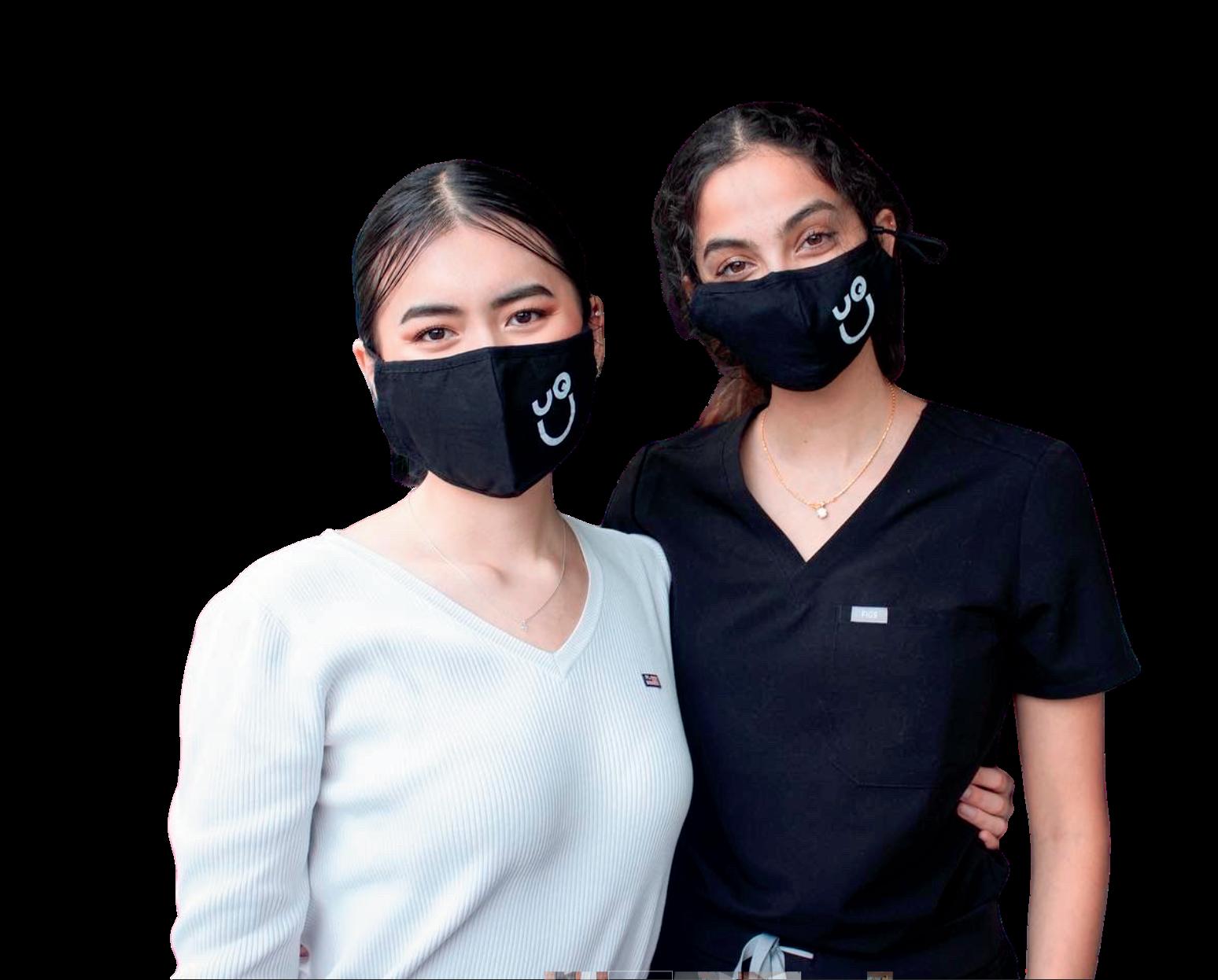
The Disability Collective, affectionately known to members as “DisCo”, is concerned with the advocacy, support, and social connectedness of students at UQ who experience disability, including chronic illness, mental illness and/or neurodiversity. The Collective offers peer support for its members and raises awareness of issues surrounding disability throughout the greater university body, and in the wider community
The Disability collective aims to build a positive, welcoming, and supportive community for our members through running informal networking gettogethers, workshops, organised events, and meetings both online and on campus
Our collective has rooms on campus, as well as online communities, which provide safe spaces for students to ask questions, connect with others, and access support and advocacy.
The Disability Collective is committed to working with the university administration, teaching staff, and student advisers, to advocate for student rights, refer students to appropriate support services, and help students navigate life at university.
DisCo is also responsible for administering the UQ ADHD Network, which has its own Facebook group and Discord channel.
a semi-autonomous
disability, in a similar way
Over 400 active members on Facebook, and a growing Discord server Study workshops targeted to students with ADHD Subsidised “Intro to Auslan” (Australian sign language) workshops for members of the collective and the wider student body Legal Rights in Education workshop for students with disability by expert in Disability Discrimination Law, Robin Banks Disability Forum about life after university with guest speak Yuma Decaux, a blind UQ graduate New and updated Disability Rooms on St Lucia campus with a dedicated room for rest and relaxation, kitchen, foyer, bathroom and flexible areas for study and activities. The rooms also include items to assist with medical and disabilityrelated needs such as emergency foods, weighted blankets, stim toys and cold and heat packs Free provision of low-cost mobility aids to assist students with disability on campus at disability officers are paid now, and in the future
Distribution of a survey as part of research project designed to investigate the experiences of students with disability at UQ This project was financially supported by the union and co-designed by members of the Disability Collective with the input and guidance of 5 academics from 3 different Australian universities
Accepted invitations to speak at a national and international conferences about the above research project
Interview with the The Australian newspaper, quoted as saying that “courses should be designed to allow for flexibility from the outset (for students with disability)”
Market day stalls and awareness and information stalls
Free live music at the Wednesday markets in Campbell Place by musicians with disability Social activities throughout the year including movie nights, crafternoons and casual gettogethers Advocacy to improve assessment policies, inclusivity of course content, and provision of
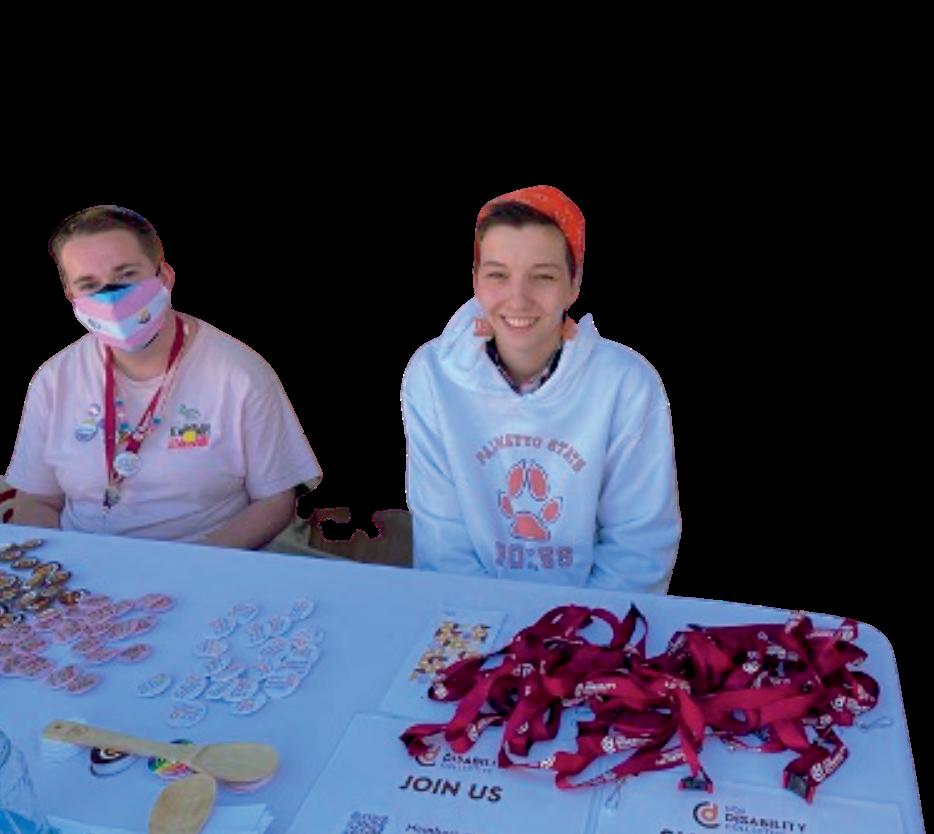 DisCo is
collective for students with
to how Goorie Berrimpa is a semiautonomous collective for students who identify as Indigenous or Torres Strait Islander This means that while DisCo is a part of the student union, and subject to union rules and regulations, in any given year DisCo is not affiliated with one specific political party Different political parties do not put forward their own candidates for Disability Officer as they do for Queer Officer and Women’s Officer Instead, the presumptive Disability Officers are nominated and endorsed by the Disability Collective prior to StuPol (Student Political) elections This process ensures that only students with disability have a say in who represents them, as per the union regulations
DisCo is
collective for students with
to how Goorie Berrimpa is a semiautonomous collective for students who identify as Indigenous or Torres Strait Islander This means that while DisCo is a part of the student union, and subject to union rules and regulations, in any given year DisCo is not affiliated with one specific political party Different political parties do not put forward their own candidates for Disability Officer as they do for Queer Officer and Women’s Officer Instead, the presumptive Disability Officers are nominated and endorsed by the Disability Collective prior to StuPol (Student Political) elections This process ensures that only students with disability have a say in who represents them, as per the union regulations
To preface - I do not wish to simply lay out a list of events in this reflection, but rather put forward what the broad perspective of the Collective has been this year. The climate crisis is reaching a dire stage which warrants serious consideration for what the student union’s outlook should be
In understanding the achievements of the Environment Collective this year it is worth turning back the clock In 2020 under a Liberal Party run union the collective was essentially defunct, running few (if any) events, often in collaboration with (and in subordination to) the university proper Never were these sparse events based around activism. But that was not unique to 2020 or even to Liberal student union years, this was a long standing trend In my years at uni I cannot recall an active Environment Collective until 2021.
This is important because our work this year in the Environment Collective is humble, but of extreme importance The last two years that I have been Environment Officer have been spent building a collective from the ground up and turning it into an activist space. A space in which students can express their animosity towards climate inaction and resist it
This year we began by reaching out to students in O-week and week 1 with the collective hosting a meeting titled “Abolish the Rich to Save the Planet”. For decades destructive industries and companies have tried to shove the blame for climate change on students, workers and the poor Companies like BP have told us to watch our “carbon footprints” while selling oil for extortionate profits (and spilling 4 million barrels of oil into the Gulf of Mexico!)
So we have tried to highlight the hypocrisy of this corporate doublespeak and lay the blame on the true perpetrators of crimes against the planet - the rich
Taking this as our starting point we have organised a variety of protests throughout the year with demands targeting government approved expansion of the fossil fuel industry and against the companies pursuing these projects
In March we organised the Brisbane wing of the Global Climate Strike called by Greta Thunberg. In this time QLD and NSW were experiencing extreme flooding, but these disasters are no longer apolitical, unforeseeable tragedies. We know their increased frequency is caused by climate change- in particular greenhouse gasses from fossil fuels Instead of bracing for these disasters, expanding SES services and flood relief provisions the government is expanding the fossil fuel industry!
This shows we cannot rely on the powers at the top of society to grant us climate action for they are only adding fuel to the fire This is why activism matters, we cannot trust politicians and CEOs; they have lied to us for decades. We need to build a grassroots movement which challenges them and forces the change that we need This is the project that the Environment Collective has been focused on building this year It has been the efforts of not just myself but of the whole Collective in doing this, but we need more activists So please, get involved.


If you haven’t been to the Postgrad Lounge recently you might not have noticed the addition of a Parenting Room next to the Kitchenette. The room includes cabinets to store baby bags in while on campus, a recliner, and a fridge (and soon a changing table) Many of the existing parent’s rooms on campus are in inconvenient locations or simply a bathroom with a changing table, making a sub-prime space for feeding a young-in. We are investigating whether the door between the Women’s Collective and the hallway in 21C can be opened to allow access the parenting as well.
Throughout this year we’ve been scaling up our programs, including bringing our ambassadors on board throughout the planning process to deliver experiences that students truly value. These range from our Cocktail party at the newly renovated Patina on Alumni Court in July, to our Campus Careers Expo on August 18th in collaboration with a dozen clubs, 60 suppliers, 40 volunteers, and over 700 students in attendance, or our upcoming Ball in September. But beyond big-ticket items, APS has seen huge success with our exec planning philosophy this year ‘meet them where they are’, hosting monthly coffee events with our HDR students, visiting our non-St Lucia campuses, and funding student groups and clubs to put on their own postgraduate events focused on their campus area.
Advocacy: Lobbying the government to take action on masters Our small win for this year was successfully lobbying the federal government on the Centrelink rules for master’s students Since 2013, no university has had an opportunity to have a master’s course approved for students to access student allowance payments through Services Australia. While we were unsuccessful in knocking over the silly rules that say ‘only courses which are required for professional entry or guarantee faster entry get Centrelink’, we’re optimistic that the new government will work with us to make postgraduate study more accessible.
Another win for students this year is the relaunch of the various postgraduate bursary programmes. From Postgraduate Placement Bursaries to Emergency/Crisis Bursaries and Conference Bursaries. To date, we have budgeted more than $20k worth of bursaries to support postgraduate students experiencing financial hardship during their studies at UQ to assist with non-study related expenses
I am Sumi (she/her), one of your student-elected International Officer for 2022 Summing up my role – I look after international students at UQ and help international students navigate through their university life The International Collective also host events that are culturally relevant and enjoyable for the international community. I am also a member of a few committees at UQ where I work with staff and academics and ensure that they are hearing the voices of international students On top of hosting 19 events (as of 28/09/2022) this year, ranging from employment workshops to cooking classes, below are the highlights of the International Collective.
This is the first year that the International Collective has an executive team to assist us with our events and other initiatives Our team consists of a Secretary, a Treasurer, two Event Officers, two Social Media Officers, and two Welfare Officers from varying backgrounds. The team has been of tremendous help in providing valuable insights and diverse perspectives especially in implementing the International Collective Room
One of my biggest priorities at the start of the year was to have a space for the international community My intention for this room was for it to be used as a communal lounge area where students from different parts of the world can come and relax, meet new people, make a cup of tea, play some board games, and have fun The planning commenced from March 2022 with the help of the executive team. On July 18th 2022, we finally had our IntCo room opening. It is now used every day for group study sessions and even for international club meetings It is located beside the Women’s Collective Room and the Redroom in the Union Complex and I encourage you to take a visit.
Lastly, realising the need for smaller international clubs to have an opportunity to host a big ball, we hosted the inaugural Atlas Ball on August 13th 2022 with fifteen different international clubs and societies and with at least one club from every continent. This event is also line with my goal to promote cultural inclusivity and to bridge cross-cultural friendships With inclusivity in mind, This event comprised of 400+ ticket buyers, four hours drinks package, canapés, a photo booth, four photographers, one videographer, four welfare officers, four security guards, a VIP room for students to step away, performances by four cultural clubs, multiple photo op areas, attendees from Gatton, transport to and from venue for Gatton students and so much more



This year the Women’s Collective has certainly had an active presence on campus, holding countless events and initiatives, as well as many mobile offices connecting with students on the issues that affect them.
At the start of the year we campaigned on sexual health awareness and drove the effort to provide free condoms to students throughout o-week. For International Women’s Day we held a special formal event with Deidre Swan who spoke on the barriers for women when climbing the ladder in their industries. Our Share the dignity campaign spanned the months of March and August, where we held collection stations and locations where students were able to donate products that were then donated to Share the Dignity.
This year we have also held 4 book clubs and plan to hold another before the end of the year! Since the release of the NSSS survey the Women’s Collective has been working hard to push the university to improve their prevention and repsonse to sexual assault and harrassment. This includes representing students on multiple working groups and committees within the university We also held a mindfulness workshop, instructing students and attendees on mindfulness practice methods for exams and coping with stress.
We created and published the UQU Women’s Personal Safety Pamphlet, guided by Positive Prevention The pamphlet is empowerment-based and focuses on what to “DO” to handle different types of personal safety problems. This semester we also held a body painting workshop at the Un-fair, where students volunteered themselves as canvases to be painted on by ther students, with words or phrases relating to diet culture that were meaningful to them.
We also held two discussion panels at Gatton on the topics of Agriculture and Veterinary studies During Body Image and Eating Disorder Awareness Week we held a discussion panel called You as You Are Panel which focused on the issues of body image, diet culture and eating disorders. Also, look out for our feminist film screening coming up as well! Finally, as we committed to do at the start of the year we have successfully installed dispensaries for free period products in Central Library, BSL, The Food Co-op, The Union Complex, Gatton Library and Herston.
Remember to stay updated with the Women’s Collective on our social media so you can hear about future events!
Greta Simpson Women's Officer
Change is coming: Jude Forrest discusses republicanism in Australia with the launch of the UQ Australian Republic Club and its efforts around education and mobilisation of Australia.

Change is coming.
Twenty-three years after the failed 1999 referendum, we now have assistant Minister for the Republic Matt Thistlethwaite to oversee our transition from constitutional monarchy to Australian republic. Momentum is building across the country. There will be another referendum soon Young Australians have a historic opportunity to make this country freer, fairer and more inclusive There is no more important time to get involved in shaping our future.
Of the many arguments for an Australian republic, here are three to consider First, a monarchy has no place in 21st Century Australia The idea that the House of Windsor are ‘better’ than the rest of us, not just in practice but at law, challenges the principles of equality and the rule of law upon which our society ought to be built In a democracy, the people should be sovereign, not a king
Second, we abhor the legacy of British colonialism. This year, Senator Lidia Thorpe, a DjabWurrung Gunnai Gunditjmara woman, was forced to swear an oath of allegiance to the Crown that colonised and dispossessed her ancestors. Whatever you may think of her politics, this is a state of affairs that cannot be allowed to stand
To be clear, we in no way intend to distract from or detract from the momentous issue of an Indigenous Voice to Parliament But how can true, honest reconciliation be possible; how can
we wholeheartedly and without reservation, in the words of Paul Keating, recognise that it was we who did the dispossessing, committed the murders and took the children from their mothers; how can we with candor and integrity repudiate this legacy and speak sincerely of closing the gap and making things right, if the very next breath we pay lip service to the king and country that started it all? The sins of our predecessors are not our fault, but they are our responsibility If there is a Voice to Parliament, will it too have to swear fealty to the British Crown, and all it represents?
Third, we reject any interference by foreign powers in our sovereign affairs In 1975, Prime Minister Gough Whitlam was dismissed by Governor-General John Kerr and replaced with Opposition Leader Malcom Fraser That our democratically-elected government can be replaced by the representative of a foreign Head of State is unacceptable
To help make this happen, to take advantage of this historic moment, we’re starting The Australian Republic Club at UQ Our priorities are education and mobilisation – we want our generation to understand the issue of an Australian republic so that they can make an informed choice, and be engaged with the issue to help build momentum nationally If any of this resonates with you, please consider getting involved.
Email: uq republicans@gmail com Facebook: @uqarc
Han Supremacy, also frequently known as Han Chinese or Chinese nationalism, as well as Han Chauvinism, is loosely understood as the ethnocentric ideology to glorify the pure Han blood tie and the Han culture.
Han Supremacy, also frequently known as Han Chinese or Chinese nationalism, as well as Han Chauvinism, is loosely understood as the ethnocentric ideology to glorify the pure Han blood tie and the Han culture The reason why I put Han Chinese and Chinese nationalism together, despite the alternative practices seen in other studies, is due to the profound obscure distinction in between the two concepts, in a sense that they are often used interchangeably and the difference has been shrinking ever since This unique sentiment of superiority has been rooted in Chinese history, till recently being even more exaggeratedly expanded and integratively interpreted by the Chinese Communist Party leadership Attempting to unify and mobilise the insanely large population, with minimal obstacles, conquering and expanding - China, otherwise referred as the state of Han supremacy, has become proficient in word choice, creation and reinterpretation of concepts, through dynasties The success of Chinese imperialism to me is vastly facilitated by the control of people’s conceptualisation of their nation, and thereby their interpretation of the entire world system, nurturing each and every highly devoted, extraordinarily patriotic, unbending, incomprehensible nationalist
According to Zhai Quan'an, a self-claimed vanguard advocate for the promotion of Han culture, he described it as an expression of magnanimity and a tolerance of diversity, without the fear of incursions of other cultures - “Our Han culture assimilated JapanKorea-Vietnam-Singapore-Malaya-and-Thailand To put it a bit more politely, we influenced these small places that eventually came into being as nations in their own right.”(1) - a classic narrative from yet another Han Supremacist. To break down the entire story of Han Supremacy,
Han Chinese is just one of 56 official ethnic groups in China, being the so-far largest, with over 90% of Chinese citizens identifying as Han (2) Apparently, this successful sense of identity has not been built in a day or two
Dating back to the Qin dynasty, non-Han ethnic groups in the northern border areas and the people living in the coastal region of the southeast were excluded, known as the Turks, the Uyghurs and the Tibetans. Yet, the Han Supremacy legacy was later challenged by the presence of non-Han rulers with roots in the north during the Yuan and Qing dynasties I particularly like the following description made by Q Edward Wang, in one of his research, succinctly pinpointed - “Although the Han Chinese upheld the idea of ethnocentrism, as shown in their definition of the superior-inferior relation between China and its neighbours, they also invented ways to implement their ethnocentrism eclectically.” So, in spite of the challenge, Han rulers again reinforced Han cultural superiority by implying that non-Han’s aggression was utterly an indication of their barbaric nature and cultural inferiority to the Han Chinese (3) I noticed that Q. Edward Wang made some precise comments on Han ethnocentrism in his article, until his conclusion that the Manchu rule of China eliminated the ethnic distinction and unified the world across ethnic lines was made Yes - the ethnic distinction had been forcefully eliminated by the one-of-a-kind involuntary interracial marriage and thereby ethnic cleansing This agenda of mandatory ethnic unification did not end in the past, but has been pushed onto an unprecedented extreme till now - with Uyghurs ending up in concentration camps, and Tibetans to be in exile or prisoned, let alone the endless cultural genocide in regions where Han Chinese ironically claimed to be “culturally inferior and barbaric”
To make it even more self-conflicting, in a recent official propaganda of “Chinese culture” published by the Confucius Institute in Munich, the so-called “barbarians”, whose traditional clothings with rich unique ethnic culture, were featured and presented as incorporated “Chinese culture”
Another important comment on Han culture made by Zhai Quan'an was - “It has a strong stomach capable of digesting you, sucking out the nourishment and shitting out the dross ” I believe this exceptionally descriptive statement is fairly self-explanatory for the aforementioned conflict - anything conditionally useful for exerting the soft power of Chinese imperialism is “sucked out as the nourishment”, while the “dross” could be anything or anyone in the way of this unification process towards Han ethnocentrism One can hardly not be amazed by the skilful construct of the concept of Han Supremacy, throughout the transition of dynasties - just perfect for facilitating the centralisation of the ruling power
This masterpiece, as a just-fit political tool, has been so well-preserved that even in the most recent centuries, without conquest from their neighbourhoods, the Chinese nationalists’ fear of being conquered again, and urge for expansion and engulfment is in their bones and in their blood; as if those twisted patriotism-provoking sentiments have been crafted by imperialists, who now present themselves as the ruling class of the Chinese Communist Party - yet another Chinese empire which shall not be named other than a Socialist state with Chinese Characteristics.
To furthermore monopolize the narrative, Mao even put the cherry on top by initiating the Cultural Revolution, to crosscheck with the subsequent generations that any past values such as the Confuciusism were held responsible for the loss of China to Japan and the West; whilst western ideologies, framed as Socialism with Chinese Characteristics, were considered critical going forward. The wonderful effect of this cherry on top is that, together with the long history of Han Supremacy, the Chinese Communist Party can even reinterpret the state as an absolutist unitary state - one country, one culture, one race, one thought, one voice, one systemin an imaginative, amalgamated fashion (4), budding automatically and systematically generated Han chauvinists plus Chinese nationalists
Now what? One China - perfect.
To briefly describe the difference between positive rights and negative rights, negative rights are the rights of non-interference - that are, for example - the right to life is a right not to be killed, the right to liberty is a right not to be enslaved; the freedom to practice one’s religion, to write, speak and assemble with others without interference by any others, are known as negative rights. For a positive right to be exercised, one's actions must be added to the equation. (5) Theoretically, a negative right forbids others from acting against the right holder, while a positive right obligates others to act with respect to the right holder. (6) That means, succinctly, positive rights are associated with active actions, contrasting with passive negative rights
However, context always matters, when it comes to distinguishing positive and negative rights. Rights to self-determination, for example, can fall into very different categories under different circumstances When Hongkongers are calling for Hong Kong independence with the collapse of “One Country, Two Systems”, followed by a progressive, active intervention by Beijing since 2014, or even earlier, the demand for self-determination is a negative right Oppositely, when Han Supremacists are calling for self-determination, and simultaneously occupying East Turkestan, Tibet and many more nations, ambitiously, aggressively exerting imperialism all over, out of an ethnocentric narrative, this is recognised as a positive right to self-determination
There could be millions of examples of such, and there is just one main idea - context matters And here we come to one of the best strategies frequently played by Han Supremacists and the holy imperative leadership of their empire - conceptualisation of word choice.
Language can play a big role in how the world is perceived, and linguists work to discover what words and phrases can influence us, unknowingly. (7) David Hauser, a doctoral candidate in the U-M Department of Psychology once said, “Some words have a meaning to them that we don’t often think about but yet still affects us, which has applications to persuasion, social influence and bias in our judgments and decisions ”
He said, “Some words tend to occur in a certain context and that context bleeds into the word’s meaning Those same words can frame our judgment ”
It is not to our surprise that the word meanings are not only restricted to English; but have also been identified in other languages, such as Chinese, Portuguese and Italian. (8)
What words often imply are concepts and feelings. “One China'' - implies unity, strength, power, patriotism and loyalty to many Han Supremacists and Chinese nationalists across historical contexts. Han Supremacists repeatedly described Uyghur, Tibetans, and Turks as “barbarians” in the past and as “separatists” or “terrorists” now, amplifying the perception of their inferiority, actively and robustly inventing this association for the sake of political propaganda - so as to reinforce the holiness of “Han”, while diluting the focus of its definition, generalising the word into a brand new concept of homogenised great Chinese culture

If you still remember, Han Chinese is just one of 56 official ethnic groups in China Once you have this in mind and begin to boil down to the uniqueness of each of these 56 ethnic groups, and how different their culture and people are from Han Chinese, you will be highly likely dubbed as separatists and terrorists who evilly jeopardise the great country, crushing the state’s unity and integrity - purely treason
This is the power of words, limiting one’s ability to think without influence from the designed meaning, well-played by the Chinese Communist Party Even the name of China in Chinese is the direct translation of “the central kingdom” - “Zhongguo” Very well thought, isn’t it?
In the 21st century, the Chinese Communist Party (CCP)’s best play of words is certainly “racism” When the Han Supremacy propaganda is deeply crafted in its people’s hearts, and that serving the Party’s president means serving China’s emperor, there is no way to differentiate the state from the dictatorial ruling party ever again Each citizen in China could be a political asset of the Party, even if one is not working for the United Front, or any United Frontfunded associations like the Chinese Students and Scholars Association, one is deemed to report any suspicious dissidents of the CCP to show their patriotism, or otherwise end up as Li Wangyang “If you are anti-China then you are racist” - a very usual claim that many may have heard When the proven fact is that there is no way to separate the state and its people from the Chinese Communist Party, what accurate expression could be used to explain one’s anger and discontent over the dictatorial, tyrannical, totalitarian politics and their execution orchestrated by the empire’s ruling class?
When dissidents are struggling to word themselves, the Chinese nationalists will do it for them - “racist”, “antiChinese”, or “anti-Asian” There can hardly be an example like this that the mix of politics and race is so comprehensively entangled,
almost completely fused together, thanks to the long history of ethnocentric propaganda, which only knows how to grow exponentially century after century When words and lingual expressions have already been outstandingly exploited by the Chinese imperialists, I guess body language would not work in this circumstance The only way to debate for the truth and justice over their play of words, to make them face any opposing argument squarely, is to debunk and dismantle their twisted conceptualisation of words, reduce their fancy reinterpreted version of Chinese culture to an imaginative culture that disrespects and engulfs any aboriginality; so as their blatantly egotistical ethnocentric nationality - which should not be homogenic Han Chinese - but Zhuang, Hui, Manchu, Uyghur, Miao, Yi, Tujia, Tibetan, Mongol, Dong, Buyei, Yao, Bai, Hani, Li, Kazakh, Dai people, etc., as well as many other “nonrecognised” ethnic groups. And most importantly, no separatism sentiment should be intentionally provoked just by embracing each peoples’ existence and uniqueness - fall into the Sino-paronomasia trap no more
SOURCES
1
http://www chinaheritagequarterly org/articles php? searchterm=020 zhai quanan inc&issue=02 0 https://www businessoffashion com/articles/china/hanfu-fantasy-notnationalism-drives-interestin-traditional-chinese-clothing https://muse jhu edu/article/18312 https://tfipost com/2020/07/drunk-on-han-supremacy-communistchina-holds-a-very-racist-ima ge-of-india/ https://books google com au/books?
In around October of 2021, the Assessment Sub Committee (ASC) started an issue register. The ASC looks over assessment policy brought to them – or raised by members – and endorses what the committee agrees on On the issue register, I added closed captions for lectures and video course content, and members agreed that this proposal should be in policy, but that it wasn’t something they had control over. A UQ staff member helped me put together a survey that was circulated by the UQ Union to collect input on closed captions and live transcripts for course content at UQ – specifically if even inaccurate ones were wanted With 200+ respondents it was an overwhelming yes, they were wanted even if they were inaccurate.
This dropped off my radar for a bit and I picked it back up at the start of Semester 2 this year (2022), asking how it was progressing in an ASC meeting A few emails later, I wrote a proposal and provided it to Digital Learning Sub Committee, asking if I could attend one of their meetings and speak on it
Quoted from my proposal: “The reason for a policy change is the majority of teaching staff that I speak to about Student Access Plans defer to UQ’s policy, even if said policy breaches the Disability Discrimination Act. Hence – by making it policy – it ensures that students have something they can point to when their request is ignored, and it standardises the expectation that all course content videos have closed captions, without relying on the culture of a school since accessibility is often an afterthought.”
The change proposed will be under “Recording of Teaching UQ” 3 20 5 1 under procedures, the bold and underlined is what is to be added:
“Under normal circumstances, recordings will be made available on the relevant course site within 48 hours of the learning event, with automatically generated closed captions or live transcripts enabled ”
This change applies to lecture recordings and other video recordings, but not tutorial, laboratory, or practical recordings
I chose to push for automatic closed captions and automatic live transcripts because most students, who don’t have an auditory processing or hearing related disability, are able to interpret what inaccurate automatic closed captions or live transcripts mean with the context of what they are hearing and context of the topic. For students that need accurate closed captions or live transcripts they can access an SAP [Student Access Plan]
This proposal was endorsed by Digital Learning Sub Committee, approved by Teaching and Learning Committee and Academic Board. It will be in place semester 1 2023, a small but important step to making learning at UQ accessible to all students We still have a long way to go for accessibility at UQ, but this is a good first step
Just yesterday a wall mural was painted in front of the UQ Union’s women’s collective and international collective room The artwork painted by Lily Ghali, a fine arts student, conveys deep bittersweet meaning The Semper Floreat team was incredibly lucky and honoured to be able to attend the artist’s painting process and interview her to better understand the meaning of her work and the historical significance of the artwork The mural is officially called “the Girl of peace” a painting that was influenced and inspired greatly by artist Kim Seo-Kyung’s ‘Girl statue of Peace'
The girl statue of peace by Kim Seo-Kyung is also known as the ‘comfort women’ statue The statue symbolises the victims of sexual slavery during the Pacific War. The “comfort women” are women and girls who were taken forcibly or completely defrauded into joining military brothels to be “used for the comfort of the soldiers”. The number of these women is estimated at around 200,000 people, who were taken from Imperial-Japanese-occupied territories: Korea, China, Philippines, Burma, Thailand, Vietnam, Malaya, Manchukuo, Taiwan, the Dutch East Indies, Portuguese Timor, New Guinea alongside a smaller number of European women from the Netherlands and Australia. Thus, the Girl statue of peace serves as a symbol of remembrance, honouring all women and children who were sacrificed for the evil of men, before and during the Pacific War. It also symbolises and encourages the fight and advocacy for justice for the victims who still to this day demand a formal, sincere, and legitimate apology from the Japanese government.
The Semper Floreat team was able to interview Miss Ghali for a series of questions regarding her artwork and her involvement with the mural project.
How did you first become involved with this?
My friend Eric approached me for an art project, since I have previously done other cultural and activism art projects, I was eager to help out
When you first learnt of the history of the “comfort woman” how did that make you feel?
I felt shocked that I didn’t know more about this history I somewhat felt an emotion of ‘defeat’ that such a horrible thing has occurred in the past and I can’t do anything to change that past I felt sadness and was disgusted at the history behind it I was also very heartbroken that so many of these women were under the age of 16
These emotions were the key driving factors that made me want to get involved I wanted to do something, at least anything that can bring some level of justice to what occurred I know I cannot change the past, but in my present moment I can still raise awareness, so the voices of these women are not forgotten
What is the meaning of your art and who inspired you? Eric’s passion for this cause inspired me to do my own research Upon my investigations, I was heavily influenced by artist Kim Seo-Kyung the original designer of the ‘Girl peace statue' My artwork is a homage and tribute not only to the victims of the Pacific War but also to the amazing artists who first created such symbolic and powerful art I have included numerous symbols from the original art that serves as a powerful tool to share the narrative of the girl in the art. Here are some changes I made to my painting.
Her hand is opened allowing butterflies to fly out of her hand, signifying a start of future reconciliation and hope flourishing. Her other hand is still clenched up as a fist representing the dedication of the victims who will no longer stay silent but will tell their story.
Unlike the original art with a shorter skirt and her bare feet showing (symbolising the unstable lives of the victims), I decided to paint a longer dress covering her feet that are stuck to the ground, I wanted to show that the girl is welcomed here at this place, and she indeed belongs here and can feel welcomed. I wanted the girl to have some stability here at UQ.
I painted a butterfly breaking out of the yellow background, I wanted to express how this message of hope and the truth regarding the ‘comfort women’ will be shared further and further raising more awareness in the future.
I didn’t paint the original East Asian girl from the statue, but rather a black silhouette with no facial features I did this because the victims of ‘comfort women’ came from a diverse range of various nations, including even Australia I wanted to find a way to represent all the women who were taken away, and my way of doing that was by painting the girl as a silhouette
Even though I wanted to make this painting all about love, peace and hope that is to come in the future, we cannot have a proper future without remembering the past That is why I have included the tears on her face, even though the girl is hopeful for a better future she still can remember the hurtful past and everything she had to go through
What effects do you hope your artwork to have in our world?


I hope this art can be used to raise more awareness of such an important history that we all collectively share as we live in the Pacific I hope people are more educated that this indeed occurred, and people were hurt, many people I think it’s also very important to mention that countless nations were damaged by this past including our nation Australia This is not just about the past; this is about all sexual violence occurring around the world against women and children This is not an issue of the past, but rather an ongoing issue that we must all stand up against I hope my artwork can spark positive discussions on how we can better influence and change the world today
Any other comments you’d like to make on this topic or your art?

I want to say that I was utterly shocked to find out that even Australian women were involved in the Pacific War sexual slavery by the Imperial Japanese military. Australia has such a huge role and history in the pacific, yet I couldn’t believe that I was never taught about this issue. I was so amazed and encouraged by Jan Ruffe O’Herne the Australian Women’s rights activist who shared her story and fought for justice until her passing. I think she would’ve loved to see that more young people are finding out about this history and are getting involved to do something about it.
For many people, this is just history, something terrible that happened during terrible times in modern history,
something that happened 80-90 years ago and is not so relevant anymore However, for the victims and their families, it has been a living hell every day for the last 80 years
For some people, this isn’t a shameful history that ‘happened a long time ago', rather for them, it is their story, and it is their life This is the reason why countless people and organisations all around the world work to advocate for the victims of “comfort women”


This is the reason why people are fighting every day across the world to erect statues, create artwork, make films, and write books This is a past that cannot be forgotten nor should it ever be forgotten, that is why we do what we do, to continue to raise awareness, to educate more people that sexual violence against women has always occurred in human history and still continues to occur all around the world today If we truly want to create a better future for our world, we mustn’t forget our past. We must rather learn from our past, remember it and bring justice for the victims in order for us to move on to creating a better, fairer and brighter future. I hope one day, even UQ will be able to erect such wonderful statue, to remember and advocate for all victims of wartime sexual violence.
If this article has spoken some encouragement to you, please consider getting involved with us and our activism. You can reach out to me at 0410213936 or email our office at info@fcwsydney.org.au
Feeder tickets, the bane of student unions Ever since I started being a part of student politics, I’ve always pondered over why we would ever need a system like this. I just assumed they must be of benefit to the system in some way I have not been enlightened about But alas, now I can safely say that, in my humble opinion, they are nothing more than tools to increase the major party’s hold in the election.
The stench of bureaucracy is plastered all over feeder tickets and their ability to get votes without the groups having any on-ground campaigning at all during election week. In UQ, multiple candidates are often spread across multiple parties, also known as multimember ballots The union uses an above the line preferential voting system like the Australian government. However, this causes an issue where many of the votes given to feeder tickets by students often funnel back into a ‘major’ party, often without the knowledge of the student They get students to vote for them by having names to catch your attention such as “WAP” or “Smoker’s Rights”.
This system largely undermines democracy and the voters’ honest opinion, with minor parties especially being disenfranchised due to the overwhelming number of ‘fake’ parties that exist on the poll.
Council chairman Sam Adams stated, “The whole feeder ticket episode was a messy business I’m not opposed to combing through rules to try and find loopholes and exploits but in the end, it got kind of silly. As a minor party, I knew that unless I played the same game as the majors, I would be at a serious disadvantage I don’t like having to fight dirty to win, but I certainly don’t regret taking advantage of perfectly legal exploits.”
Feeder tickets also result in low turnout due to discontent with the polls being too overwhelming, with last year’s election ballot being absurdly big (i e A1 or A2 sized). I asked current disabilities officer
ZWE AUNGAlicia and she stated, on behalf of the collective, “some members of the Disability Collective found the huge ballot papers were not accessible to them. The small text created difficulty for members with low vision and the large size of the ballot papers for members with upper limb disability Other members with anxiety issues and neurodivergency found the huge ballot papers overwhelming. These issues meant that some members elected to withdraw from or not engage with the voting process”
During the last Union council meeting held on the 25th of May, a motion was proposed to change the rules to ensure that feeder tickets are much harder to pull off during the next election However, this failed

In my opinion, a minor reform will not stop feeder tickets from happening, albeit it will just make it harder for minor parties to “play dirty” together with the major parties What we need is a complete abolishment of feeder tickets I know people will see this as a depletion of a diversity of candidates, but I request that you look at the parties running and see how many tickets were legit
A new motion will certainly be passed regarding this issue during the next council election and the outcome is yet to be seen Regardless, we will need to raise awareness on this issue and just hope that all parties choose to run a fair and legitimate campaign

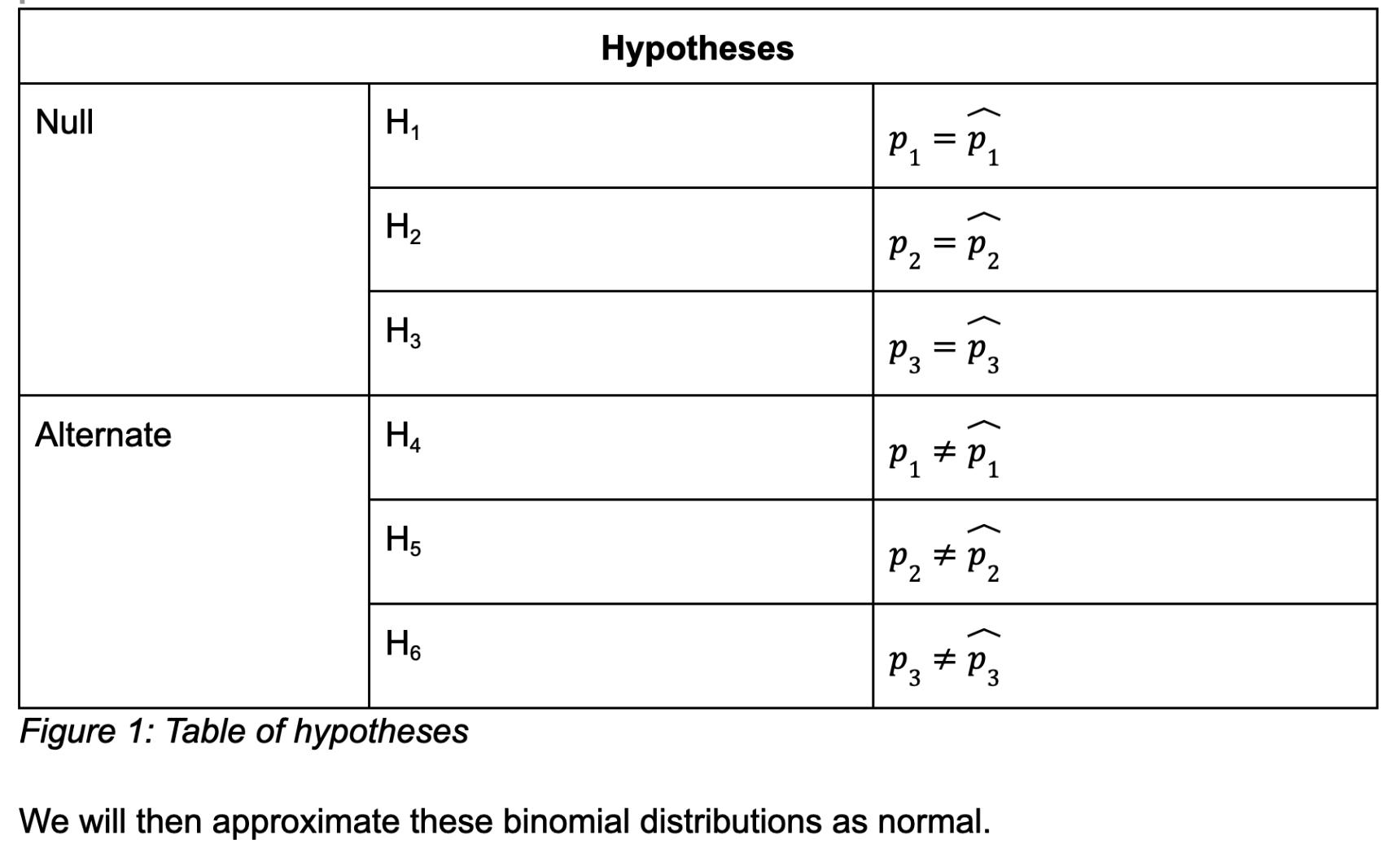
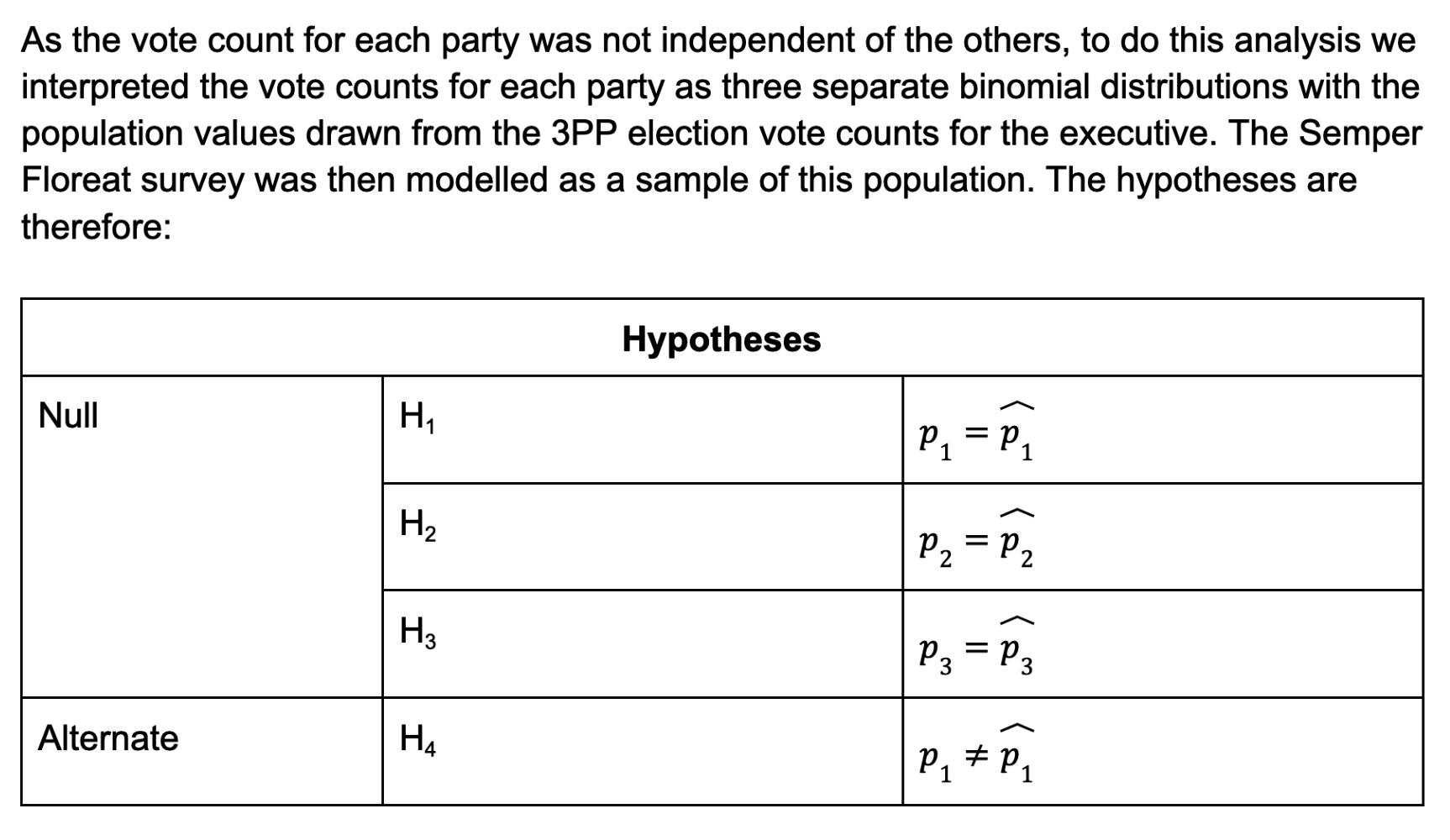
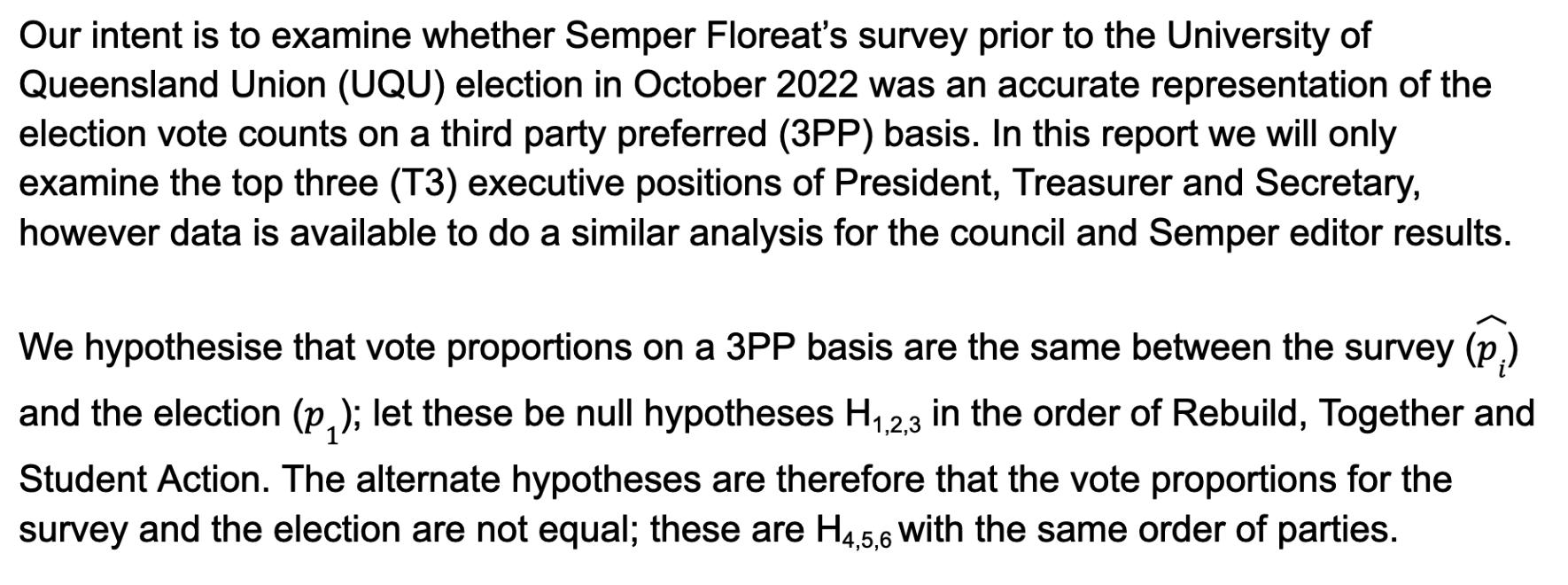
 Author: Miles X
Author: Miles X
Introduction






